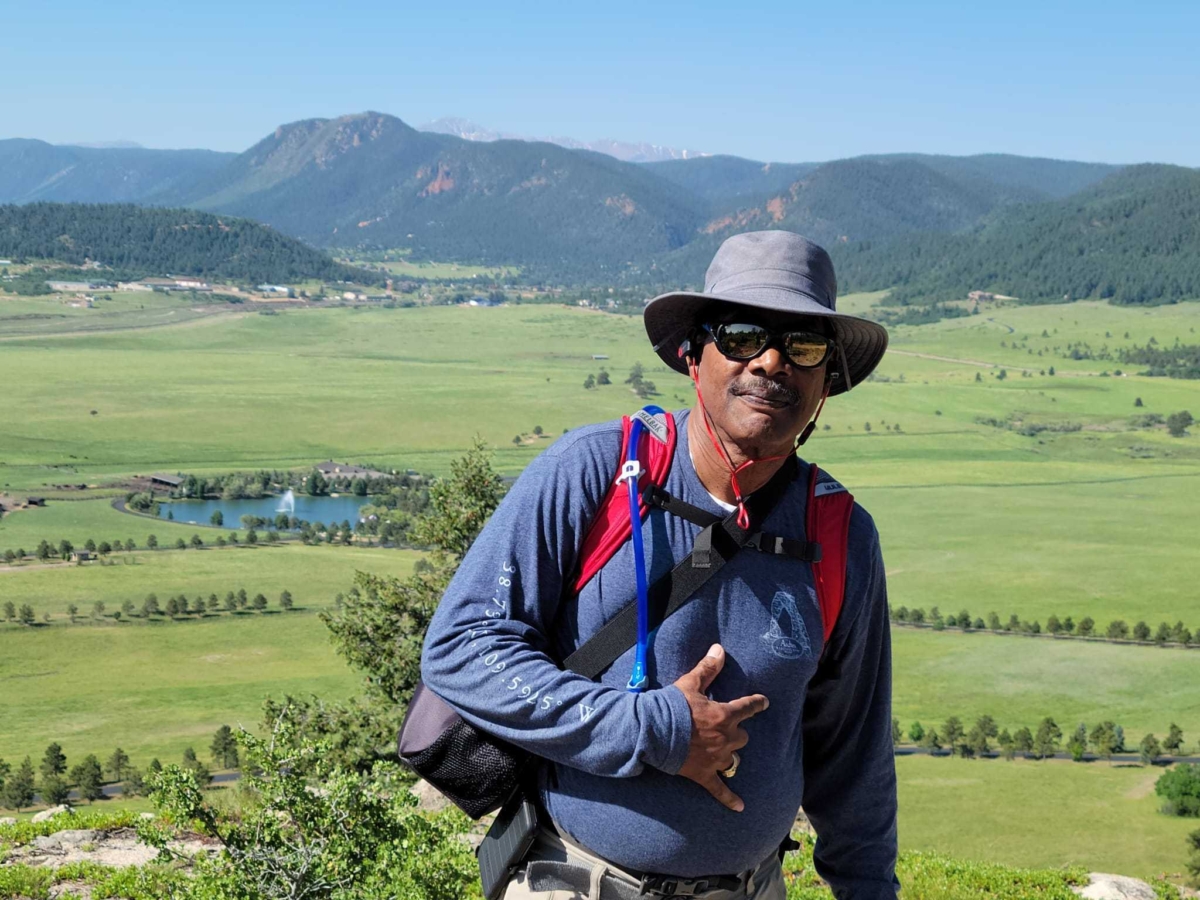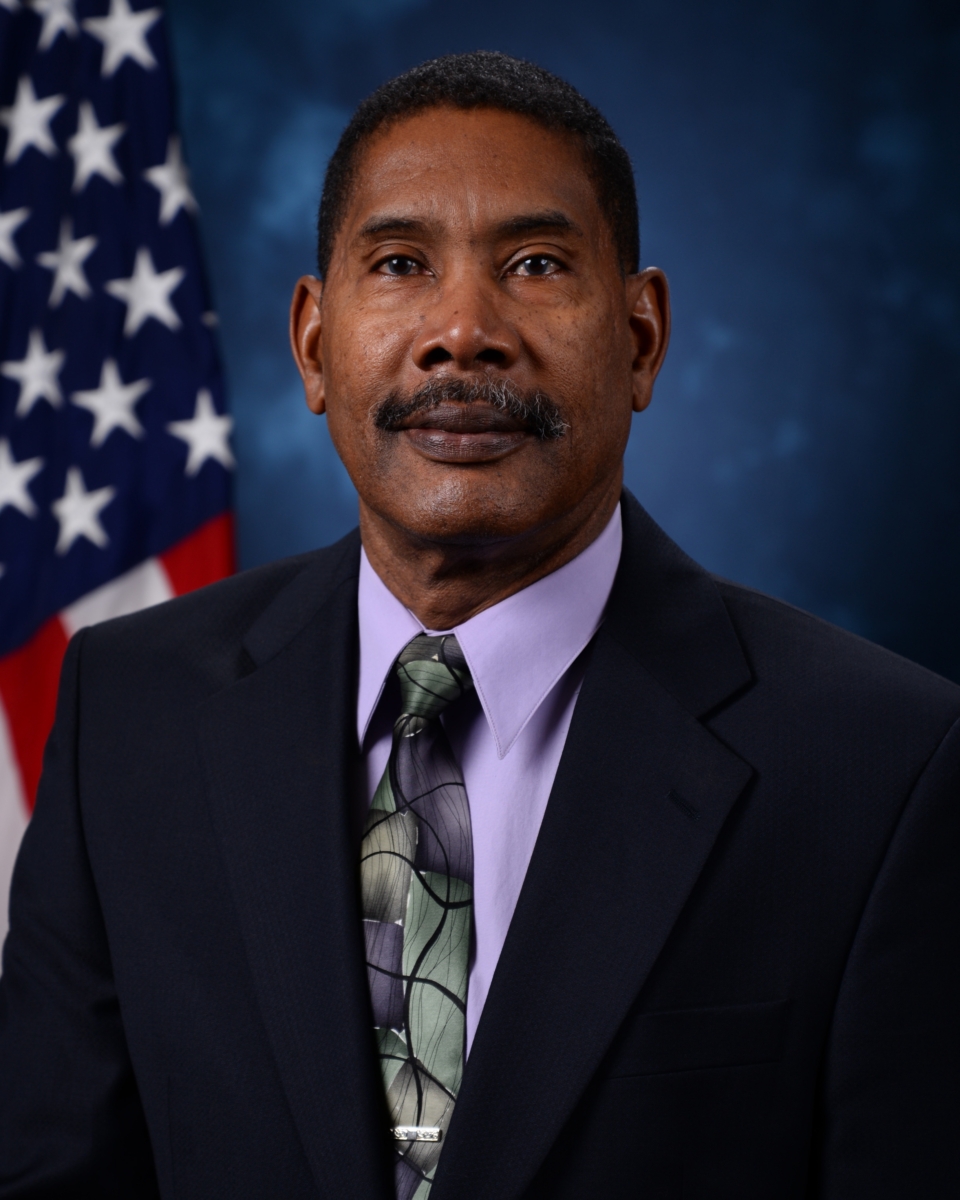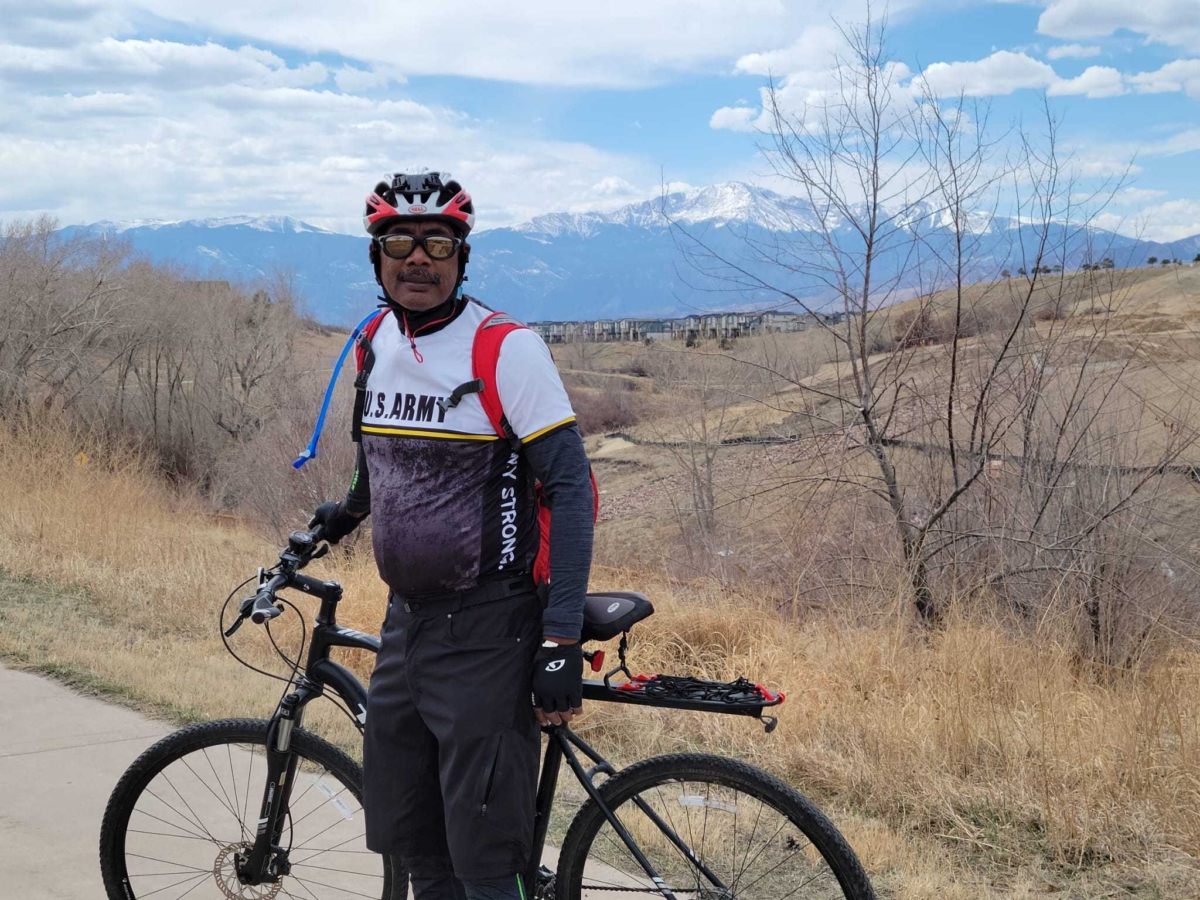Meet the Team: Karl Walker, Infrastructure Network System Administrator
Our feature series “Meet the Team” gives our readers the opportunity to take a deep dive into what makes our team special. We interviewed Karl Walker, Infrastructure Network System Administrator at Air Force CyberWorx, to introduce him to our readers and allow him to tell the story of his career in IT. Please enjoy getting to know our all-star team members and exploring the people who make CyberWorx exceptional.
 A History with AF CyberWorx
A History with AF CyberWorx
AF CyberWorx (CWx): What drew you to Air Force CyberWorx?
Karl Walker (KW): My interest in CyberWorx over the last five years has been in the type of work that’s being done and how it’s impacting the Air Force overall. Previously working with CyberWorx from the outside, I got to see a lot of interesting things and help put in the infrastructure to make the internal operating piece of CyberWorx more successful.
Now being a member of the CyberWorx community, I get to see from the inside looking out the impact it can have on the Air Force as a whole, and the value that they bring in terms of how organizations and people can be more efficient and improve their processes.
CWX: So you’ve worked with CyberWorx before, from the outside. Would you tell us more about that?
KW: I was in the 10th Communication Squadron (networking infrastructure). We provided all the communications support—the networking and wireless connections for the CyberWorx family. It ranged from getting access to the access points, to the hard wire so people could get on the network, and also helping them establish their classified and unclassified network accessibility.
So I watched CyberWorx grow into what it is today—from the outside.
CWx: What is your role here at CyberWorx?
KW: My title is Infrastructure Network System Administrator. Right now, my function here is evolving, but it has to do with the information technology realm, the integration of innovation development, and infusing resources into an operational platform.
From the Army to the Air Force CWx: Would you tell us about your previous experience in the Army?
CWx: Would you tell us about your previous experience in the Army?
KW: I did over 20 years in the military, working in the personnel field and also network administration. I came to really like that aspect of what I did in the Army. I had multiple assignments living in Europe—Germany, Belgium, and traveling to the Netherlands and Italy—and then back to The Presidio, San Francisco.
When I was in Europe, I really got to see how the military and IT work, because it’s really well integrated, and there’s this notion that we have to make the technology work for the warfighters so they’d have the right information at the right time, depending on whatever the situation is. So we wanted to deliver reliable, good information to them.
I think the Army gave me an understanding of being a member of a team. Once I started working inside my career field, that’s when I really learned that what we were doing was important. We didn’t see it directly, but we knew the things that we did impacted others further down the line. So for us, it was critical that what we did was at our highest level of performance.
CWx: So you really had a deep understanding of the impact of your work.
KW: Yes. It’s huge. You don’t know the ramifications until something happens, and you peel back the onion and see where something failed because people didn’t get the right information. It produces unintended consequences. You have to think of the reality that, even though our day-to-day work might be mundane, it’s important that we give it the priority it needs to have.
IT Culture Across OceansCWx: Earlier, you mentioned living in different places when you were in the Army. Do you want to talk about any favorites?
KW: My favorites? Basically, all of Europe. I grew up in a military family, so I lived overseas with my dad and my mom. We lived in Germany—and when I joined the military, I also lived there.
I really enjoyed living in Germany. I also lived in Belgium and traveled to France, to the Netherlands, to Italy. Often, based on my duties and roles in the military, I would go TDY to various other countries in Europe. I took languages in college, so learning the languages when I was in Europe was not a difficult task.
We infused ourselves in the local cultures. When I was in Germany, I played 15 years on the German-American volleyball team, and I coached the team. When I was assigned to NATO headquarters in Belgium, I played on the Belgian-American volleyball team for five years. So, volleyball is my passion in terms of a sport. I played it for 20 years.
So I got to learn the culture of the communities or countries that I lived in and appreciated that. When I was in Belgium, I lived in a village that was 1,200 years old. My neighbor was in his 90s, and he was considered an outsider because the people and their families had lived there for hundreds of years! Meanwhile, this poor gentleman had been there ninety-something years—and he was still considered an outsider.
In Belgium, my wife and I became very good friends with our neighbors, and we introduced them to American-style barbecue. So we would cook extra foods, whether it would be chicken or steak or something else, and I’d take it over and to my neighbors on the left side of us or to the right side of us. They appreciated that, and we started sharing other foods in their culture.
CWx: You said that the culture was also different within the IT realm. Tell us more about that.
KW: When you’re in the military in Europe, the cohesiveness and closeness are different than it is in CONUS . So it was really tight. Everyone gets to know everyone within the organization. We made sure we looked out for one another, and there was this strong bond. We worked together as a team, and that really struck me as one of the best things I got out of living in Europe.
Career Growth and Continuing EducationCWx: And now you are pursuing a PhD?
KW: Yes, I’m pursuing a professional doctorate in Information Technology, and I’m about to graduate, hopefully in the next two to three quarters. I’ve completed all my didactic coursework; now I’m doing my research and writing up my dissertation.
I’ve completed my chapters one through three, and I’m just waiting on IRB approval to conduct my research. Once I do that, then I’ll write up my assessment, analyze the data, and then publish my dissertation.
CWx: What is your dissertation topic?
KW: My topic of the dissertation is really long, so I’ll narrow it down. It has to do with information technology leaders and organizational performance. In that process, organizations can perform based on their leadership. More in line to my interests: How does IT work? How do IT leaders within organizations encourage or influence their IT workers?
The perception of leadership impacts organizational performance. That impact has a mediating effect through knowledge management and organizational learning, which can create what we call organizational innovation that influences organizational performance.
I discuss five topic domains within my dissertation that influence how IT and IT leadership—and in particular, transformational leadership—affect the performance within an organization and the work culture of the IT workers.
CWx: Transformational leadership? Would you say more about that?
KW: Transformational leadership is where the leaders have a deep understanding of the members in their workforce. They have an acute alignment of bringing in all the ideals and concepts that each worker brings individually and also as a whole.
Once they have that information, they’re able to synthesize it and then instill into the members that they have ownership in how IT impacts the business organization. It helps strengthen the bond in the alignment of IT and business strategic plans. Without IT, business organizations cannot succeed or improve their processes.
AF CyberWorx: Installing the Guardrails of TechnologyCWx: It’s exciting to see the kinds of things you will do here at CyberWorx!
KW: I see it here. I see with this organization that innovation requires, to a great extent, the use of technology. And technology can be used in a good way or in a bad way, but it also has to have guardrails to ensure that it’s utilized in the most productive but also benign means or methods so that it achieves operational requirements within the organization.
That requires leadership to understand how IT plays a role in their business or their operational requirements—and not as an afterthought. Often in my career, I’ve seen organizations look at IT as an afterthought (“Oh, we need IT to go do this for us”), as opposed to a member sitting at the table and saying, “You want to accomplish X? Then you need to do Y in terms of resource, infrastructure, tools, and applications in order to achieve that business objective.”
About Karl WalkerCWx: Would you like to tell us about your early history, where you’re from, etc.?
KW: I was born and grew up in Kansas. My family is from the East Coast, but being a military family, we traveled literally all over the world, so home is where we placed our hats. Growing up, I’ve lived all over.
Once I was in the military, I spent almost my entire career living in Europe. I did one stateside tour; that was Presidio, San Francisco, and I really enjoyed that assignment. I got into unified, specified, and NATO environments. Once you get inside that circuit, they keep you inside of it, so it worked out.

When I met my wife, we were both in the military. We married while living overseas in Germany. She retired from the Army as well, so we are definitely an Army family. She also has her perspectives on the things we did in the military. We definitely believe that it was a strong cultural enhancement for us because we got to see things that ordinary citizens wouldn’t see, so we can appreciate the value of where we were and where we came from.
CWx: What do you do for fun?
KW: My wife and I do a lot of mountain biking, anywhere from 6 to 13 miles a day over a weekend. We’re not technical, but we’ll ride the trails. When the weather’s good, we’ll go to Boulder or Golden—or Moab in Utah.
We’re also avid hikers. We’ll do anywhere from 3 miles to 13 miles just hiking. Every year we watch the turning of the leaves of the aspens in Kenosha Pass. That trail is 22 miles long, but we go about 10 miles up to go through this giant grove of aspens.
CWx: Would you like to tell us anything more that we didn’t ask about?
KW: On my last combat tour, I came back from Bosnia at the end of the ’90s. I retired from the military and decided I wanted to work in the civilian sector, so I applied to the local school district as a network analyst and got hired.
The interviewer asked, “Why do you want to work with the school district?”
I said, “I just want to give back something that the system has given to me. I’ve had great opportunities.”
Coming back from the combat tour and seeing a lot of devastation, I think it’s really important for our young people—our kids’ generation—to get educated because I have observed that education is key to the understanding of cultures. I saw societies that restrict who can be educated, how they can be educated, and what they are allowed to think. So I wanted to work for the school district.
I explained to the interview board that I had just come back from Bosnia. I saw it firsthand. I saw that only men were educated, and women were subjugated to subservient roles. Those kinds of societies have a longer road to haul in terms of dealing with things.
But when you have an open society, and everyone has access to being able to participate and have a meaningful role, then that society becomes cognizant. So it’s important that our education systems are vibrant.
I’ve worked in technology. We had to ensure that the technology would work well within the educational system so that whoever’s doing the instruction has the ability to reach as many kids as possible. To me, that was important.
CWx: Thank you, Karl, for allowing us to share this part of your journey with our readers. We’re excited to be part of your story and look forward to seeing you and AF CyberWorx continue to grow!
Learn more about aF CyberWorx!
Be sure to check out the rest of our Team and stay informed by reading our blogs!
